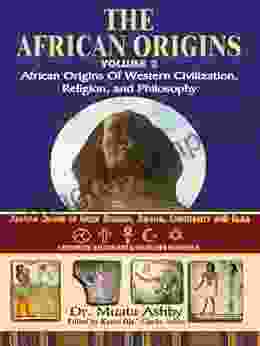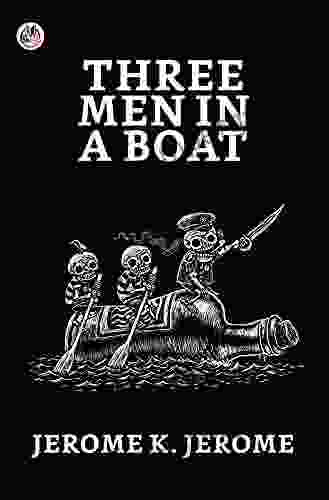The African Origins of Western Civilization: Religion, Ethics, and Philosophy

For centuries, the prevalent narrative has portrayed Western civilization as the pinnacle of human achievement, a beacon of knowledge and progress that emerged from the minds of ancient Greeks and Romans. However, recent scholarship has challenged this Eurocentric view, revealing the profound influence of African thought and culture on the development of Western civilization. This article delves into the African origins of Western civilization, exploring the interconnectedness of religion, ethics, and philosophy that laid the foundation for our modern understanding of the world.
The Nile Valley as the Cradle of Civilization
Evidence suggests that the Nile Valley in northeastern Africa was a hub of human activity and intellectual development as early as the 10th millennium BCE. The ancient Egyptians, known for their remarkable achievements in architecture, mathematics, and astronomy, were part of a vibrant and sophisticated civilization that flourished along the banks of the Nile River. This fertile region provided sustenance and a stable environment for the growth of ideas and knowledge.
5 out of 5
| Language | : | English |
| File size | : | 6172 KB |
| Text-to-Speech | : | Enabled |
| Screen Reader | : | Supported |
| Enhanced typesetting | : | Enabled |
| Word Wise | : | Enabled |
| Print length | : | 561 pages |
| Lending | : | Enabled |
Kemetic Religion and its Influence on Christianity
The ancient Egyptians developed a complex religious system known as Kemetism. Kemet, the original name for Egypt, means "black land" and refers to the rich, fertile soil along the Nile. Kemetic religion was centered around the worship of multiple deities, each representing different aspects of nature and the cosmos. The divine pharaoh, who ruled as both a political and spiritual leader, was considered the embodiment of the god Horus on Earth.
Scholars have identified striking similarities between Kemetic beliefs and practices and those of early Christianity. For example, the concept of a virgin birth, the symbolism of the cross, and the celebration of resurrection are all present in both religions. These parallels suggest that Kemetic religion may have influenced the development of Christian theology and ritual.
Ma'at: The Ethical Framework of African Philosophy
Central to ancient Egyptian thought was the concept of Ma'at, which encompasses truth, justice, balance, and harmony. Ma'at was not only a religious principle but also an ethical framework that guided people's actions and behavior. The pursuit of Ma'at involved striving for right conduct, maintaining social Free Download, and living in accordance with the natural laws of the universe.
The influence of Ma'at can be seen in the ethical teachings of later Western philosophers, such as Plato and Aristotle. Plato's concept of the "ideal" state, where justice and harmony prevail, bears striking similarities to the Egyptian ideal of a society governed by Ma'at. Aristotle's emphasis on virtue ethics, which stresses the importance of character and right action, also finds its roots in the ancient Egyptian ethical framework.
The Impact of African Thought on Presocratic Philosophy
During the 6th century BCE, a group of philosophers known as the Presocratics emerged in ancient Greece, challenging traditional religious beliefs and seeking to understand the nature of the world through reason and observation. Many of these Presocratic thinkers traveled to Egypt and North Africa to study with Egyptian priests and scholars.
The influence of African thought on Presocratic philosophy is evident in the writings of Thales of Miletus, Anaximander, Anaximenes, and others. Thales's concept of water as the fundamental substance of the universe echoes the Kemetic belief in the primordial waters of Nun, from which all creation emerged. Anaximander's theory of the "boundless" (apeiron) as the ultimate principle of reality draws parallels with the Egyptian concept of hidden or unmanifest divinity.
Afrocentricity and Recentering the African Narrative
In recent decades, the Afrocentric movement has emerged, seeking to recenter the African perspective in the study of history and human civilization. Afrocentric scholars argue that the contributions of Africa and its people to world history have been marginalized and downplayed. They emphasize the need to recognize the African origins of many fundamental ideas and cultural practices that have shaped Western civilization.
The exploration of the African origins of Western civilization is not meant to diminish the achievements of other cultures but rather to acknowledge the interconnectedness and diversity of human thought. By shedding light on the profound influence of Africa on the development of Western civilization, we can gain a more comprehensive and accurate understanding of our shared human heritage.
The African origins of Western civilization are undeniable. From the religious beliefs and ethical principles of ancient Egypt to the philosophical inquiries of the Presocratics, African thought has left an enduring mark on the development of Western civilization. By recognizing and honoring the African roots of our knowledge and values, we can foster a more inclusive and equitable understanding of human history and create a future that embraces the diversity and richness of all cultures.
The journey of rediscovering the African origins of Western civilization is an ongoing one, filled with exciting new discoveries and insights. By continuing to explore and learn about the intellectual and cultural contributions of Africa, we not only enrich our understanding of the past but also broaden our horizons and inspire future generations.
5 out of 5
| Language | : | English |
| File size | : | 6172 KB |
| Text-to-Speech | : | Enabled |
| Screen Reader | : | Supported |
| Enhanced typesetting | : | Enabled |
| Word Wise | : | Enabled |
| Print length | : | 561 pages |
| Lending | : | Enabled |
Do you want to contribute by writing guest posts on this blog?
Please contact us and send us a resume of previous articles that you have written.
 Book
Book Novel
Novel Page
Page Chapter
Chapter Text
Text Story
Story Genre
Genre Reader
Reader Library
Library Paperback
Paperback E-book
E-book Magazine
Magazine Newspaper
Newspaper Paragraph
Paragraph Sentence
Sentence Bookmark
Bookmark Shelf
Shelf Glossary
Glossary Bibliography
Bibliography Foreword
Foreword Preface
Preface Synopsis
Synopsis Annotation
Annotation Footnote
Footnote Manuscript
Manuscript Scroll
Scroll Codex
Codex Tome
Tome Bestseller
Bestseller Classics
Classics Library card
Library card Narrative
Narrative Biography
Biography Autobiography
Autobiography Memoir
Memoir Reference
Reference Encyclopedia
Encyclopedia Joan Berzoff
Joan Berzoff Jeffery D Nokes
Jeffery D Nokes Jennie Marquez
Jennie Marquez Jeffry D Wert
Jeffry D Wert Joan Leonard
Joan Leonard John A Lanier
John A Lanier Joe Pettitt
Joe Pettitt Jeremy Crown
Jeremy Crown Jim Mitchell
Jim Mitchell Jeffrey T Nealon
Jeffrey T Nealon Jillian Shields
Jillian Shields Joanna Penn
Joanna Penn Joe Barth
Joe Barth Jeffrey Crelinsten
Jeffrey Crelinsten Jeffrey H Schwartz
Jeffrey H Schwartz John Baschab
John Baschab Jo Ann Reteguiz
Jo Ann Reteguiz Jim Perrin
Jim Perrin Jeffrey M Schwartz
Jeffrey M Schwartz Jie Jack Li
Jie Jack Li
Light bulbAdvertise smarter! Our strategic ad space ensures maximum exposure. Reserve your spot today!

 Hamilton BellUnlock the Power of Low Carb: The Ultimate Guide to Weight Loss and Optimal...
Hamilton BellUnlock the Power of Low Carb: The Ultimate Guide to Weight Loss and Optimal... Thomas PynchonFollow ·15.2k
Thomas PynchonFollow ·15.2k Victor HugoFollow ·10.5k
Victor HugoFollow ·10.5k Fredrick CoxFollow ·4.3k
Fredrick CoxFollow ·4.3k Isaac MitchellFollow ·6k
Isaac MitchellFollow ·6k Franklin BellFollow ·13.4k
Franklin BellFollow ·13.4k Tyrone PowellFollow ·4k
Tyrone PowellFollow ·4k José SaramagoFollow ·4.1k
José SaramagoFollow ·4.1k Leo MitchellFollow ·9.6k
Leo MitchellFollow ·9.6k

 Christian Barnes
Christian BarnesUnleash Your Creativity: Build Interlocking 3D Animal and...
Discover the Art of Paper...

 Terry Bell
Terry BellUnveiling the Secrets of Winning: A Comprehensive Guide...
In the realm of chance and fortune, the...

 Albert Camus
Albert Camus101 Things That You Should Do Before Leaving The House In...
Starting your day right is...

 Anthony Burgess
Anthony BurgessForcing Move 2024 Volume: Unleash Your Inner Grandmaster
Embark on an extraordinary chess...
5 out of 5
| Language | : | English |
| File size | : | 6172 KB |
| Text-to-Speech | : | Enabled |
| Screen Reader | : | Supported |
| Enhanced typesetting | : | Enabled |
| Word Wise | : | Enabled |
| Print length | : | 561 pages |
| Lending | : | Enabled |














